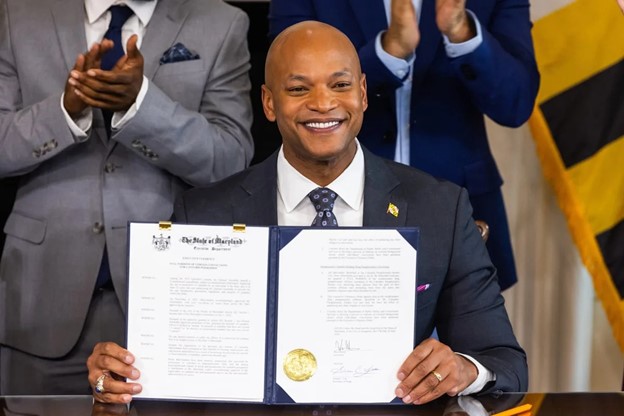The landscape of cannabis legalization in the U.S. continues to evolve, with recent federal and state-level developments shaping its future. One of the most exciting advancements is the movement towards cannabis cafes in California, a concept that blends the social and cultural aspects of cannabis with a regulated and controlled environment. President Joe Biden’s recent support has played a pivotal role in propelling this movement forward. This article explores Biden’s influence on California’s cannabis cafe initiative, provides examples of similar concepts globally, and discusses the potential impacts on the local economy and society.
Biden’s Support and Federal Influence
President Joe Biden’s administration has been instrumental in fostering a more supportive federal stance on cannabis. While Biden himself has historically been cautious about cannabis legalization, his administration has taken significant steps towards reforming cannabis policy.
In recent months, the Biden administration has shown increased support for cannabis-related initiatives, including the decriminalization and safe use of cannabis. This shift in policy has encouraged states like California to advance their cannabis legislation, paving the way for innovative concepts such as cannabis cafes. Biden’s support is reflected in the Department of Justice’s stance on cannabis enforcement, which emphasizes a more lenient approach towards state-regulated cannabis businesses.
California’s Move Towards Cannabis Cafes
California, a pioneer in cannabis legalization, is now moving closer to establishing cannabis cafes, where patrons can consume cannabis in a social setting similar to a traditional café. The state has been working on legislation that would allow cannabis consumption in designated establishments, enhancing the cannabis culture and generating new business opportunities.
Recent legislative efforts in California include the introduction of AB 2024, which aims to regulate cannabis cafes by setting standards for consumption, licensing, and operational requirements. This bill represents a significant step towards integrating cannabis into social spaces and creating new revenue streams for the state.
Examples of Cannabis Cafes Worldwide
To understand the potential impact of cannabis cafes in California, it’s helpful to look at examples from around the world:
- Amsterdam, Netherlands: Known for its coffee shops where cannabis is openly consumed, Amsterdam has long been a global model for cannabis cafes. These establishments operate under strict regulations, providing a safe and controlled environment for cannabis use. They have become a significant part of the city’s cultural and social fabric.
- Barcelona, Spain: Cannabis social clubs in Barcelona offer another model for California. These private clubs allow members to consume cannabis in a communal setting. While not exactly the same as a café, they provide insights into how regulated consumption spaces can function and integrate into local communities.
- Los Angeles, USA: Prior to the potential widespread establishment of cannabis cafes, Los Angeles has seen a variety of cannabis lounges and consumption spaces that serve as early models. These businesses offer a glimpse into how such establishments might operate within the legal framework in California.
Economic and Social Impacts
The introduction of cannabis cafes in California could have several positive impacts:
- Economic Growth: Cannabis cafes have the potential to boost local economies by creating jobs and generating tax revenue. As seen in other locations, these establishments can attract tourists and increase spending in the area.
- Social Integration: By providing a regulated environment for cannabis consumption, cafes can help normalize cannabis use and reduce stigma. They offer a safe space for consumers and can contribute to a more inclusive and accepting society.
- Public Safety: Regulated cannabis cafes can help reduce illegal cannabis sales and consumption by providing a legal and controlled alternative. This can contribute to overall public safety and reduce the burden on law enforcement.
Challenges and Considerations
While the potential benefits are significant, there are challenges to consider:
- Regulation and Compliance: Ensuring that cannabis cafes operate within the legal framework will require stringent regulations and enforcement. This includes addressing issues related to consumption limits, safety standards, and business practices.
- Community Impact: Some communities may have concerns about the presence of cannabis cafes. Effective community engagement and education will be essential to address these concerns and build support.








